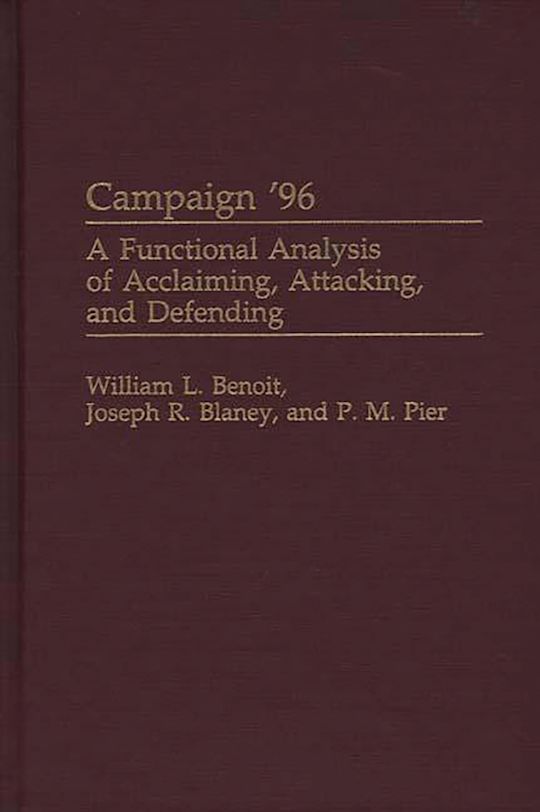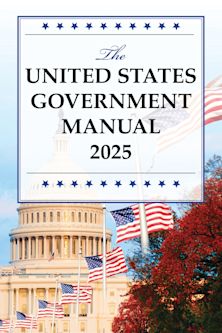Campaign '96
A Functional Analysis of Acclaiming, Attacking, and Defending
Campaign '96
A Functional Analysis of Acclaiming, Attacking, and Defending
This product is usually dispatched within 1 week
- Delivery and returns info
-
Free US delivery on orders $35 or over
You must sign in to add this item to your wishlist. Please sign in or create an account
Description
Benoit, Blaney, and Pier apply the functional theory of political campaign discourse to the 1996 presidential campaign. When a citizen casts a vote, he or she makes a decision about which candidate is preferable. There are only three types of rhetorical strategies for persuading voters to believe a candidate is the better choice: acclaiming or self-praise, attacking or criticizing an opponent, and defending or responding to attacks. As they illustrate, acclaims, if accepted by the audience, make the candidate appear better. Attacks can make the opponent seem worse, improving the source's apparent preferability. If attacked, a candidate can attempt to restore—or prevent—lost credibility by defending against that attack.
As Benoit, Blaney, and Pier point out, the functional theory of political communication is relatively new, and their book illustrates it with a detailed analysis of the most recent presidential campaign. One of the major strengths of the study is the variety of message forms examined: television spots, debates, talk radio appearances, keynote speeches, acceptance speeches, speeches by spouses, radio addresses, and free television time remarks. It also examines all three parts of the campaign—primary, nominating conventions, and general campaign. This comprehensive analysis of the '96 presidential campaign will be of considerable use to students, scholars, and other researchers dealing with contemporary American electioneering.
Table of Contents
Preface
Introduction
Overview: A Functional Theory of Political Campaign Discourse
Method: Acclaiming, Attacking, and Defending
Procedures: How We Analyzed Campaign '96 Messages
Republican Primaries: Who Shall Lead Us?
Debates: A Free-for-All
Television Advertisements: "I'm More Conservative Than You"
Talk Radio: What Are the Candidates Saying about Each Other?
Nominating Conventions: Anointing the Chosen
Keynote Speeches: It's Great to Be a Republican/Democrat!
Acceptance Addresses: "I Will Lead Us to Victory"
Stand By Your Man: Elizabeth Dole's and Hillary Rodham Clinton's Convention Speeches
General Election Campaign: The Final Showdown
Televised Advertisements: Dole/Gingrich versus the Liberals
Radio Addresses: Hear Ye, Hear Ye
Debates: Direct Confrontation
Free Television Remarks: Their Unfiltered Utterances
Conclusion and Implications
Outcomes: Who Won (and by How Much)?
Implications: What Have We Learned?
References
Index
Product details
| Published | Nov 24 1998 |
|---|---|
| Format | Hardback |
| Edition | 1st |
| Extent | 288 |
| ISBN | 9780275963613 |
| Imprint | Praeger |
| Dimensions | 9 x 6 inches |
| Series | Praeger Series in Political Communication |
| Publisher | Bloomsbury Publishing |
About the contributors

ONLINE RESOURCES
Bloomsbury Collections
This book is available on Bloomsbury Collections where your library has access.


































